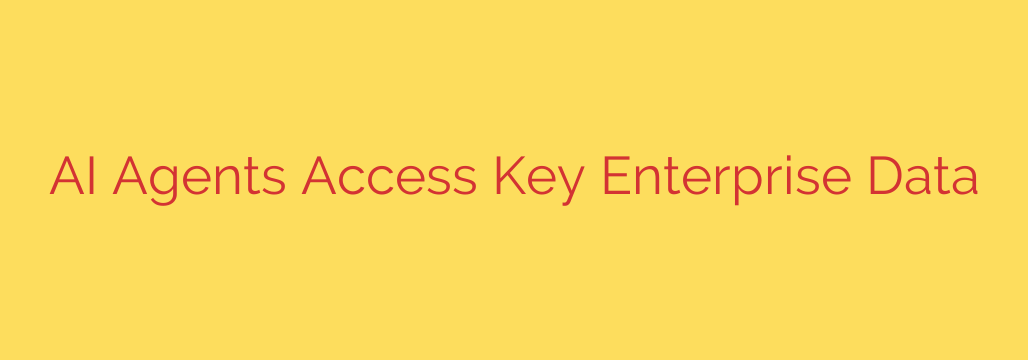
Artificial intelligence is rapidly transforming the landscape of business operations. At the forefront of this evolution are AI agents, sophisticated programs designed to perform tasks autonomously, from customer service interactions to complex data analysis. However, the true power and utility of these agents are unlocked only when they can seamlessly access and interact with key enterprise data.
Think of AI agents as intelligent assistants. To be effective, they need information. This crucial information resides within an organization’s internal systems: customer relationship management (CRM) databases, sales records, inventory systems, financial platforms, human resources data, internal documents, and much more. Accessing this diverse and often siloed enterprise data is fundamental to enabling agents to perform valuable actions.
Granting AI agents this level of access allows businesses to realize significant benefits. Agents can automate routine tasks that require retrieving and processing internal information, freeing up human employees for more strategic work. They can provide employees with instant access to relevant data, accelerating workflows and decision-making. Furthermore, agents can analyze vast amounts of internal data to uncover hidden patterns, generate insights for business intelligence, and even provide highly personalized experiences for customers or employees based on their specific history and context.
Enabling this secure access involves complex integration. It typically requires utilizing APIs (Application Programming Interfaces), specialized connectors, and robust data integration layers that act as secure bridges between the AI agent platform and various internal data sources.
However, connecting AI agents to sensitive internal data also introduces critical challenges, chief among them being data security and privacy. Organizations must implement stringent access controls, encryption, and monitoring to ensure that agents only access the data they are authorized to see and that this data is handled in compliance with regulations like GDPR or CCPA. Managing the complexity of different internal systems, addressing existing data silos, and ensuring the reliability and preventing unintended actions by autonomous agents are also vital considerations.
Successfully deploying AI agents with access to enterprise data requires careful planning, investment in secure infrastructure, and a clear strategy for data governance. When done correctly, however, it can lead to unprecedented levels of productivity, efficiency, and intelligent automation, giving businesses a significant competitive edge in today’s data-driven world.
Source: https://www.helpnetsecurity.com/2025/05/30/ai-agents-organizations-risk/








